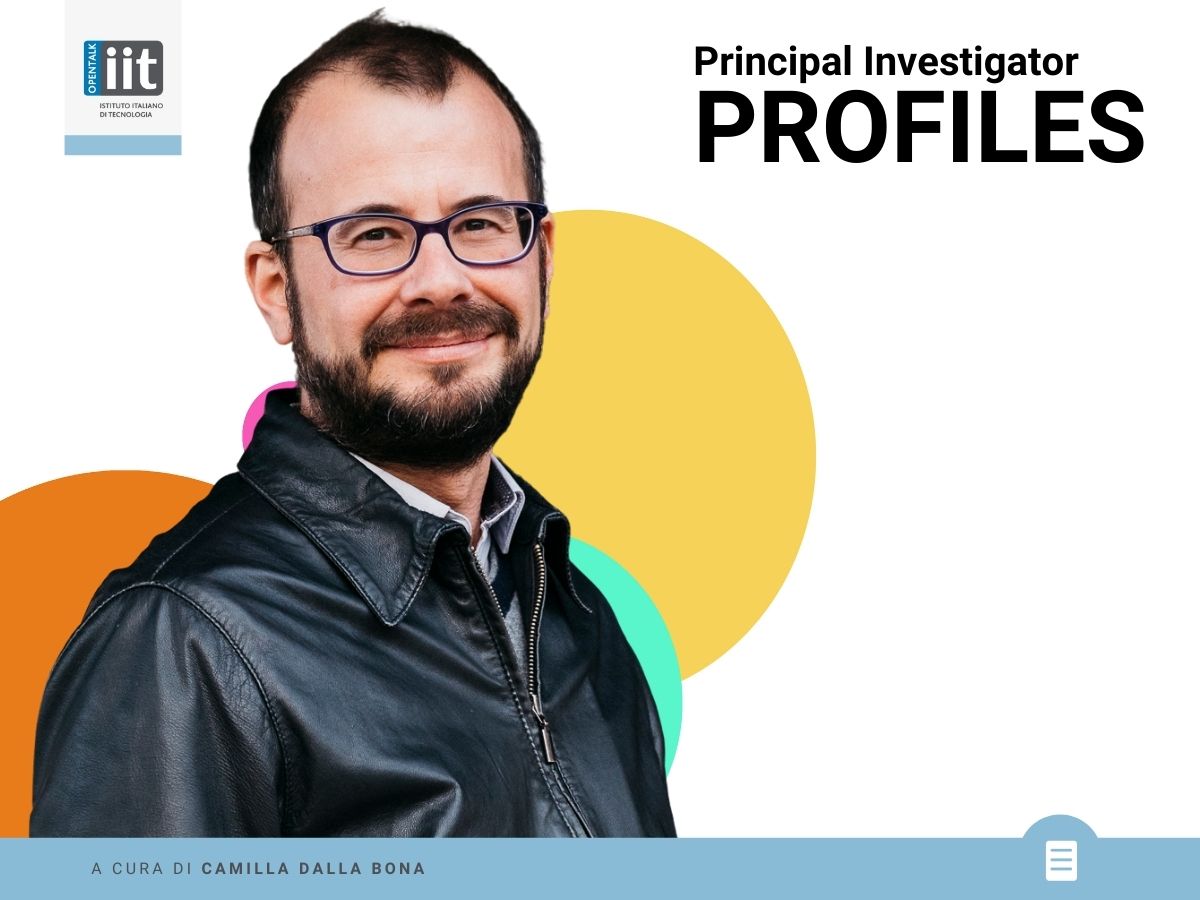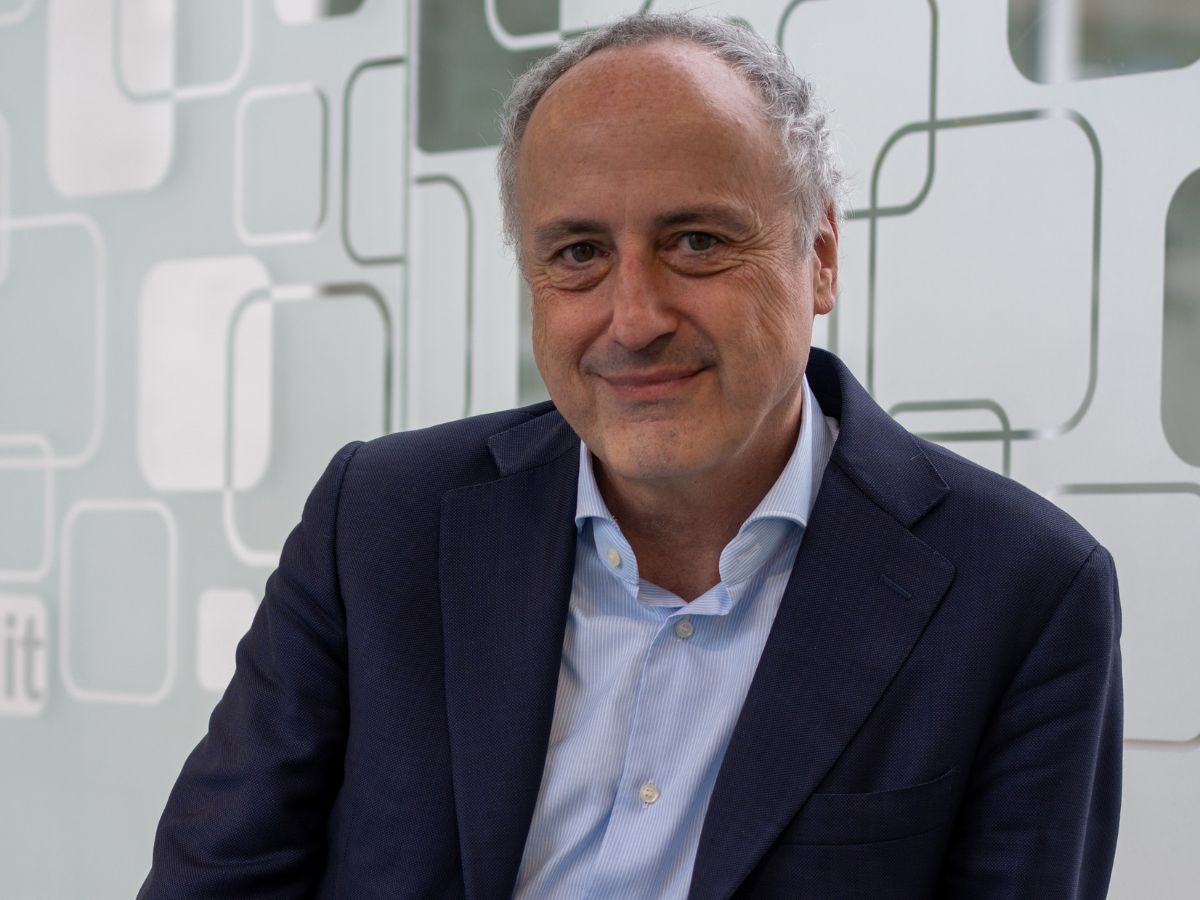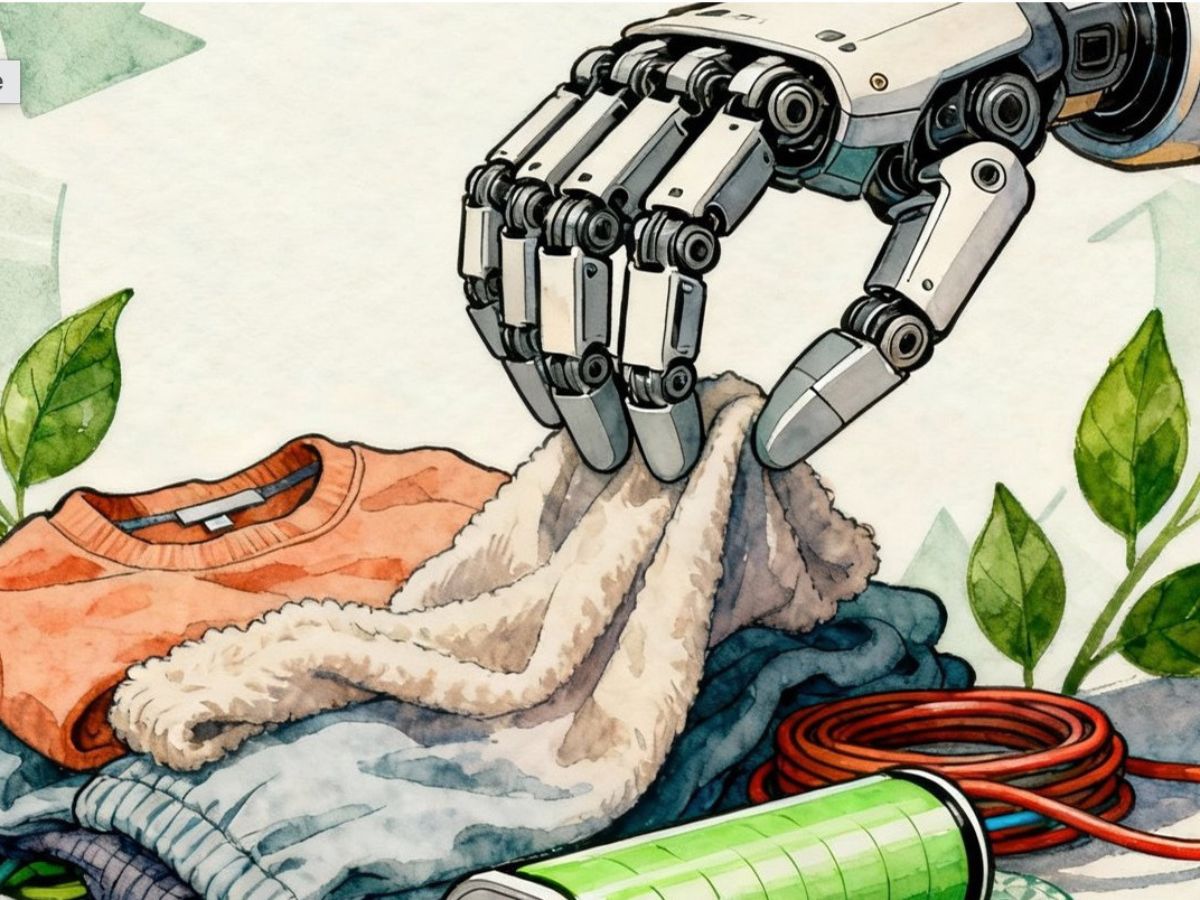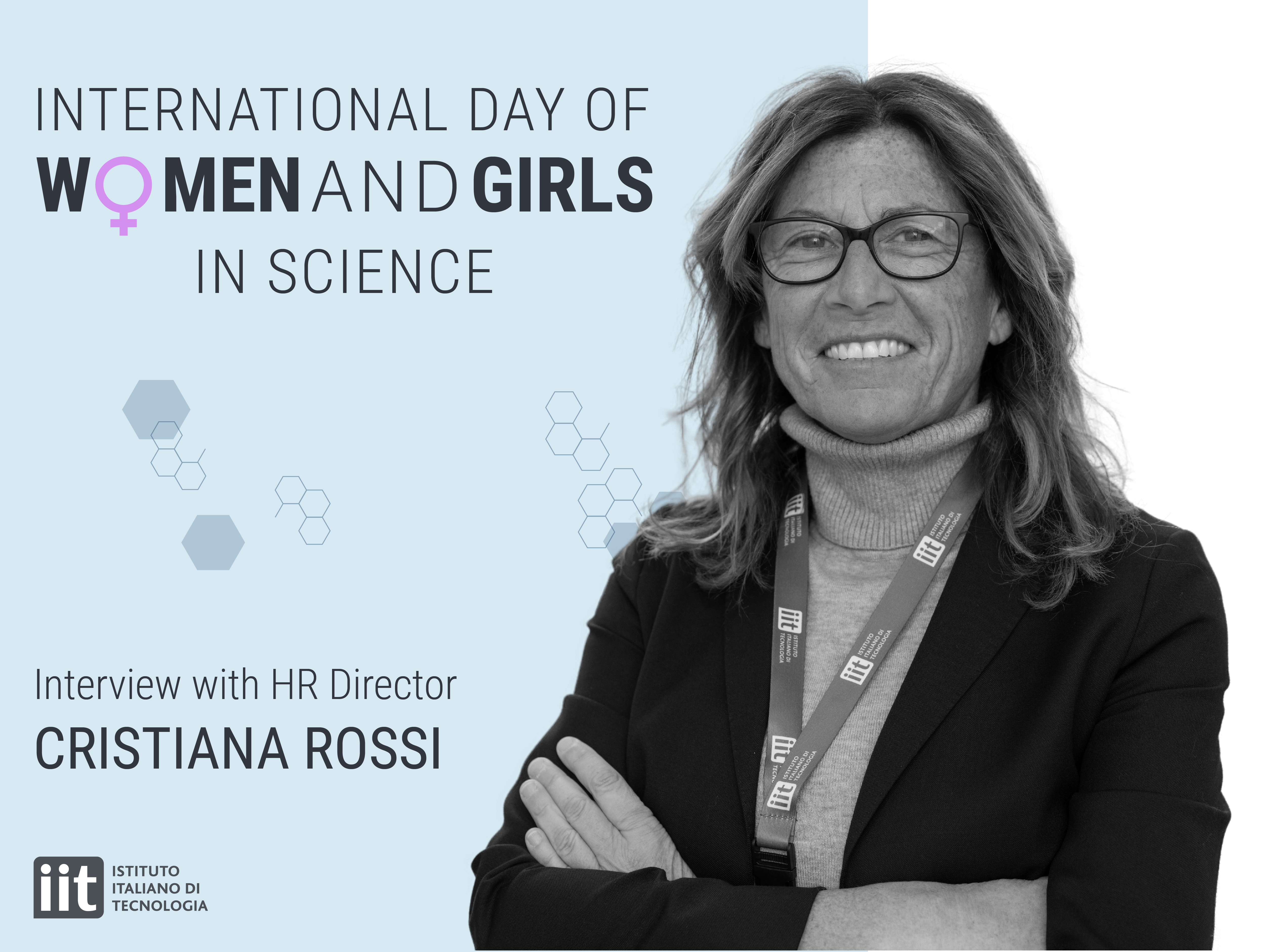Interview with Alessio Del Bue, coordinator of the IIT research line “PAVIS – Pattern Analyisis and computer VISion”
Name: Alessio
Surname: Del Bue
Place of Birth: Savona, Italy
Role: PI, PAVIS – Pattern Analysis and Computer Vision
What does your research team do? We develop artificial intelligence systems focusing on the study of the interpretation of images and sound, which can have many different applications: the analysis of human movement, object identification, and more.
When you were younger, was this the job you had in mind? Exactly this job, no, because back in the day, you didn’t hear as much as you do today about scientists and researchers. However I had always hoped to do a job in which I could express my ideas and my ability to do something useful for society.
That time you would have wanted to drop everything and do something else: I don’t remember a moment like that, because during those episodes of peak stress that may occur in our profession, the response may be to slow down activities a little, but never to give in. I think that enthusiasm is an essential characteristic for people performing research, because the process is punctuated by failures, but these should never induce us to give up. At the toughest times, I find it helpful to remember that our job, when compared to many others, is stimulating, and makes it possible to express yourself to almost 100%, and that is a real privilege. It is no exaggeration to say that the work performed by PIs (Principal Investigators), when they are writing their projects or scientific articles, is a creative task, in which we all give everything that we have, in the same way as artists do in their works.
“Publish or perish”. How does the pressure to publish influence your days and your professional choices? The factor underpinning this question, and more in general the procedures involved in publication, is the need to assess the quality of the work of us all. It implies the need to select a unified parameter of assessment that can be applied to the entire scientific community, and this brings with it all the tool’s defects and limitations. The vicious cycle that may be triggered is that publishing a lot can penalise the quality of the individual papers, but I have to say that at this moment in time, there is also a powerful response from our counterparts, in other words from those who are working on targeted research studies that could potentially have a great impact on society, and that could provide tangible assistance in certain cases, regardless of the number of papers published. This is the approach that we adopt at IIT, in the field of AI.
When did you realise you were going in the right direction? Perhaps when I understood that I no longer had any fears about my future prospects.
What is your next goal? We want to develop software, artificial intelligence systems that are truly capable of having an impact on society. At the moment we are making efforts with our European project MEMEX, in which we have devised an original application for AI: we are working with communities at risk of exclusion, namely migrants. This is a very challenging project because we are in the situation of applying computer scientist standards to a non-quantifiable and markedly heterogeneous sector.
What is the toughest aspect of your job? A PI coordinates a group of researchers, who are first and foremost individuals, all with their own personalities and characteristics. For me, being able to have a close-knit team, coordinated towards a shared objective, is one of the most challenging activities. It may seem paradoxical, but even in the most positive situations, such as well-written, well-financed projects, the factor that makes the difference is the motivation of those working with me.
Senior researchers necessarily have to deal with many bureaucratic aspects. Apparently, this aspect does not fit well with the research activity. How is that for you? This is something necessary, something that I have to do. So I try to deal with these aspects as early as possible, so that I can then dedicate my time to other activities in which I feel that I can provide a more significant contribution.
Who should invest more in research compared to what is done today? Rather than talking about who should invest in monetary terms, I would like to consider the subject on which, in my opinion, we should invest more time in changing our approach, and this is AI, which is often considered as an obscure mechanism, or a tool that can solve all problems. Many companies investing in research do not yet have all the information necessary for selecting the field into which they can invest on the basis of an informed choice. On this subject, I believe that we researchers should point out what the benefits of investing in AI could be, while also being honest and indicating its limits.
Do people talk about science outside the labs and the academic world? People talk about it, but I think that new fact-checking instruments should be implemented, as Twitter is doing, for example.
Who gave you the most important advice during your journey? I received my first lesson when I travelled to the United States for my dissertation at Siemens Corporate Research. There, they gave me clear indications that in a job such as ours, results cannot be obtained without commitment and dedication. It was a cold shower for me, as I was young and accustomed to operating in a world in which I felt relatively protected, but that experience was an eye-opener.
What would you say to the younger you? You know what you feel strongly enthusiastic about, and you should go in that direction, because only that way will the effort be manageable and you will be able to dedicate your time to it with all the energy necessary. I think that performing research is not a job like most others, and to be successful in this sector, everything has to be exceptional. In addition, I would advise myself to invest in the so-called core skills, because I have seen that they are truly useful for constructing solid foundations on which to build a career, for knowing how to programme and communicate the results obtained to a specialist audience and also to the general public.
Is working in different countries essential for a researcher? Yes, but I think that more generally, it is important to be familiar with various working environments that don’t necessarily have to be abroad; it is crucial not to get fossilised in a single workplace, and to learn new characteristics which may be useful in the future from those settings.
You can improve one aspect of research in general. Which one would you choose? In my opinion it would be good to ensure that the intrinsic value of every publication or project can be correctly attributed, and that this aspect is not pushed aside by the presence of notable personalities with greater visibility. Another consideration that I would like to see improved is the financing of research. The procedure that leads to obtaining finance is highly competitive, and often funding is obtained by just 3-4% of the proposals, and I don’t think that only such a small number of them merit this attention, considering the many ideas formulated by figures of excellence in the field of research. In actual fact, this disproportionate situation hinders progress.






